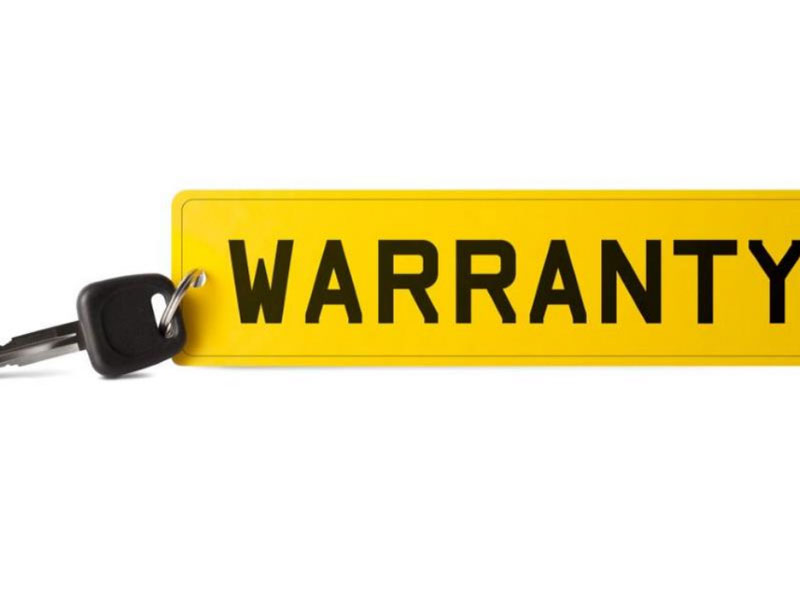First, a warning: "extended auto warranty" is a misnomer because it isn't precisely a warranty. An extended warranty is like an insurance policy for your car, protecting you from pricey, unanticipated repairs. It includes repairs for a specified number of miles and duration. Authentic warranties, on the other hand, are often included in the price of the goods. Extended car warranties are, in fact, the same thing as vehicle service contracts, even though they are more costly and may be purchased independently. We will, however, continue to use the word "extended warranty" since it is the language that you will hear the most commonly, and we do not want there to be any confusion.
Extended Auto Warranty

The manufacturer's extended auto warranty coverage for the repair or replacement of parts is extended by a service contract known as an "extended car warranty." The cost to repair or replace specific parts for a predetermined time period or a predetermined number of miles beyond what is covered by the manufacturer's warranty is covered by an extended auto warranty, which is an additional car service contract provided at an extra fee over the purchase cost by automakers, dealers, and private suppliers.
Types of Extended Warranties
Manufacturer Warranties
When you purchase a brand new vehicle, the Original Equipment Manufacturer (OEM) typically provides two main types of warranties: a powertrain warranty and a "bumper-to-bumper" warranty. The powertrain warranty specifically covers critical components like the engine and transmission, protecting against defects in workmanship that might prevent these parts from functioning correctly.
The bumper-to-bumper warranty, often referred to as a comprehensive warranty, extends coverage to most other parts of your vehicle. This includes not only essential mechanical parts but also a wide range of electronics such as on-board computers, navigation systems, power seats, and other electronic devices.
Many OEMs also offer extended warranties that essentially replicate the coverage provided when the vehicle was new, thereby extending the duration and mileage limits of the original warranty. Some extended warranties may include additional benefits like roadside assistance. When choosing an extended warranty, you can opt for plans with or without a deductible, depending on what best fits your needs and financial situation.
Third-Party Warranties

Multiple third-party or aftermarket warranties offer coverage that is similar to what OEM (Original Equipment Manufacturer) warranties provide. However, unlike OEM warranties, which are typically straightforward with fewer limitations, third-party warranties often come with more restrictions. For instance, these warranties may impose strict limitations on where the vehicle can be serviced, and they might require higher deductibles, which are some of the drawbacks. Additionally, the use of OEM parts for repairs is often not guaranteed under third-party warranties.
Another significant difference lies in how claims are handled. Under many third-party warranties, you may need to pay for repairs upfront and then submit a claim to the warranty provider for reimbursement, which can be inconvenient and financially straining.
Despite these limitations, third-party warranties are usually less expensive than those offered by OEMs. In some situations, especially when OEM warranties are no longer an option due to the age of the vehicle or other factors, a third-party warranty might be the only available choice.
How an Extended Auto Warranty Works
If you've ever owned a car, you are aware that vehicle issues can occasionally be more complicated than those that are covered by your manufacturer's warranty and can persist for a considerable amount of time after the warranty expires, meaning you may be responsible for paying out of pocket for repairs or replacements. An extended vehicle warranty is helpful in this situation. These service agreements are made to pay for certain services that are required outside the parameters of the manufacturer’s warranty or after the warranty expire. Service agreements are often limited to mechanical or electrical issues, particularly those not covered by manufacturer's warranties.
Maintenance Responsibilities Required
Always read the small print and be aware of your car's warranty limitations. You'll have to go to a specific auto technician for certain warranties or pick a repair facility from your network. If your warranty calls for it, you must bring your car in for periodic maintenance. Your confirmation might be invalidated if you don't follow the specified maintenance schedule.
- Oil changes.
- Filter changes.
- Tire rotations.
- System checks.
- Manufacturer scheduled maintenance.
Extended Warranty Tips

- The best tip for an extended auto warranty is that you do not purchase a warranty on the same day as the vehicle. You may mull it over and make a decision later. However, if you're financing the purchase of your car, purchasing the warranty on the same day should enable you to include the price of the warranty in your loan.
- It's crucial to complete suggested services on time. Some warranty providers won't pay for a repair if the owner can't show that the vehicle has been maintained following suggested standards.
- According to the Federal Trade Commission, getting a vehicle loan often does not require purchasing an extended warranty. The FTC suggests contacting the lender to see whether the dealer's assertion that you must buy a service contract to receive financing is accurate.
- A Buyer's Guide detailing the warranty that comes with the purchase will likely be attached to the car's window if you are buying a used automobile from a dealership.







